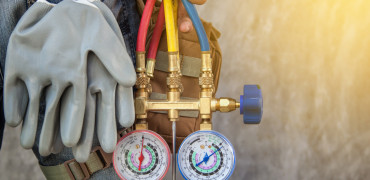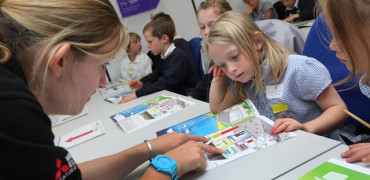Whilst the December election focused on Brexit and trust in politicians, It’s safe to say that the environment was also a large part of the debate and it is easy to see why, when reports reach us of Victoria Falls in Zimbabwe effectively drying up.
Likewise the growing concern about the thinning of ice in the Antarctic.
Or the dawning realisation in Australia that the climate crisis means extremes, including temperatures and the growing rise in bush fires.
Greta Thunberg, the school strikes and Extinction Rebellion have meant that mankind’s effect on the planet has not been far from the front pages of the news throughout the long election process.
But now that the election is over, how will this translate into action?
And will we see policies and legislation targeted at helping the nation reach zero-carbon in 2030? 2040? 2050?
With average running costs of £38 per year, these dryers offer significant savings compared with £1,460 for paper towels
Ambitious plans
In June this year, we first heard of the Government’s plan to get the country to net zero carbon emissions by 2050 – which makes the UK the first member of the G7 group of industrialised nations to legislate for net zero emissions.
However, that was a government led by the former Prime Minister, Theresa May, so a lot now depends on the focus of Boris Johnson and his new government.
The direction set by government is so important because it points to the ‘carrots and sticks’ that can be used to encourage and enforce moves to a zero carbon economy.
What can business do?
Although the result of the recent election means that we are about to ‘get Brexit done’, uncertainty for business is likely to continue for at least the next year, whilst we see what the terms of the actual ‘deal’ with the EU turns out to be.
However, despite the lack of clarity, there are things that businesses can do to reduce their own carbon footprint … and the beauty is that these simple steps can also reduce day-to-day running costs AND prolong equipment life.
The first step is to find out where your energy is being consumed, so that you can work out where savings can be achieved.
What systems do you currently use and how old are they? How often are they serviced and when was the last time?
A quick and simple audit of your systems and their use will help you find out where to prioritise things.
Do staff regularly have the heating on and the windows open for example? Or do you have systems that compete with each other? i.e. is your gas heating sometimes on at the same time as your air conditioning?
Are you heating or cooling your building when its empty? And would better use of system control help stop this by automating the times that your heating or cooling comes on to suit?
Learning the lessons
My colleague Russell Jones made a short video which focuses on our own headquarters building and the journey we underwent to take our energy rating from an ‘E’ to a ‘B’.
This was not something we achieved overnight and just like every other business, each and every improvement that we sought to make had to be justifiable to the company.
Put simply, we had to make the business case for anything that meant spending budget, whether that was capital expenditure to update aged systems or finding the money to replace carbon-intensive equipment, like when we removed gas from the site.
This also saw us covering our roof with power-generating photovoltaic panels, which mean we are often producing more than enough electricity for our daily operation and are able to sell excess to the grid.
In addition we upgraded our air conditioning and installed heat pumps to replace the gas boilers for the building’s hot water provision.
Reducing waste, improving CX
We also looked at reducing waste from our operation and this is where the washrooms became so important because with up to 300 people on site at any one time, we got through a phenomenal amount of hand towels, which were replaced with super-efficient Jet Towels.
I’m proud to work for the company that invented high speed jet hand dryers that are incredibly energy efficient boasting 50% lower carbon emissions than traditional hand dryers.
We’ve also spent over 25 years refining our hand dryers so that they are quicker, quieter and more energy efficient than ever.
Not only are these more hygienic and deliver a better experience for the ‘customer’, they have also reduced maintenance costs as they need less checking than paper towels – which always run out!
With average running costs of around £38 per year, the Jet Towel offers significant savings compared with the average costs of £1,460 for paper towels.
In summary
We now have a Prime Minister with a healthy majority who seems to be ‘on a mission’, so we will certainly see change over the coming year.
Discussions about the new deal with Europe are also likely to come to a head before the summer, but regardless of the changing dynamics of the political situation, businesses need to be able to focus on areas of certainty.
One thing that is certain is that you will consume energy in running your operation – whatever the size of your business or your building type.
We have long advocated the need for the nation’s buildings to be seen as a major opportunity to reduce carbon emissions. What this means for you as a business is that you will also be reducing running costs!
It may not be possible for you to change your heating or air conditioning right now to improve the control and energy performance.
You might not be able to cover your roof with PV but there are things you can do and one area that will significantly reduce both waste and operational costs is to install hand dryers, right now.
They will provide a cost-effective way of improving your CSR, enhancing the experience for anyone using your washrooms and cut down on the waste and maintenance needed for these facilities.
If you would like to know more about our advance and innovative Jet Towels click here.
Viki Dringer is Marketing Assistant for Jet Towels



